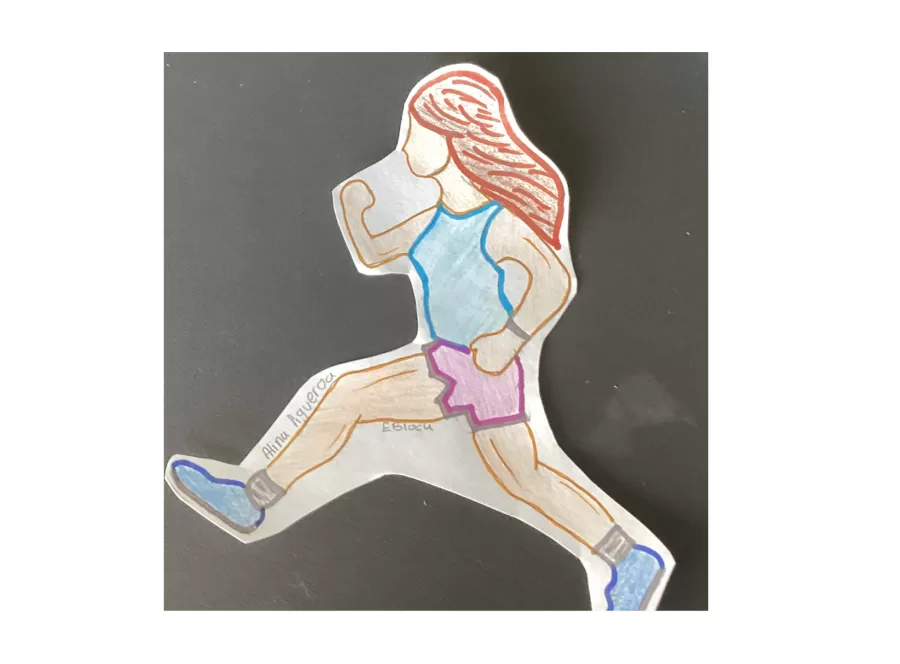Is Runner’s High Real?
That rush you get after a long exhilarating run is real, and for many, a goal.
March 10, 2023
Most runners get asked the same thing, “Have you ever had runner’s high?”
Runners high is when a person feels deeply euphoric after an intense exercise, like running.
German researchers studied the brain’s response to a high intensity run and found that the ability to get ‘high’ may come from our ancestors. David A. Raichlen, a Ph.D. professor of biological sciences at the University of Southern California stated that our ancestors millions of years ago depended on chasing their own food to survive. Their unquenchable desire for food and their desire to live motivated them to run fast. When they ran fast, they released the feel-good brain chemicals that helped them attain the speed to reach the necessary distances to catch their food.
“The runner’s high may have served (and serves today) as a natural painkiller, masking tired legs and blistered feet,” said Professor Raichlen.
Even if now, in today’s world, where we don’t have to hunt our own food daily, knowing how the feel-good brain chemicals came to be, may help you achieve that runner’s high.
How to Achieve that Runner’s High
Runner’s high is not something new as when in 2008 these German researchers decided to get to the bottom of how to reach a runner’s high. What scientists found after doing a brain scan on a runner was that during a two-hour long run, the runner’s prefrontal and limbus regions in the brain emitted endorphins. The prefrontal and limbus regions of a person’s brain are what lights up when one feels emotions like love. The more endorphins there are in these areas of the brain, the more euphoric a runner feels.
The way a runner gets more endorphins is when one pushes themselves hard, but not too hard.

Matthew Hill, Ph.D., an associate professor at the University of Calgary’s Hotchkiss Brain Institute, writes, “Endorphins are painkillers produced in response to physical discomfort, But that doesn’t mean your runs should be excruciating; you need to find a sweet spot where they are comfortably challenging.”
A causal run won’t produce the sufficient amount of discomfort to trigger a rush of endorphins, but if one tries a pace or distance that may be too aggressive for them, they may be too overwhelmed by the feeling.
Note: Endorphins can’t disregard an injury or lack of training.
So next time you go on a run, remember to push yourself to try and one day, feel the same euphoric feeling!

























